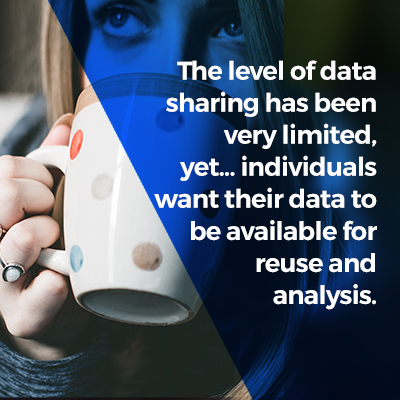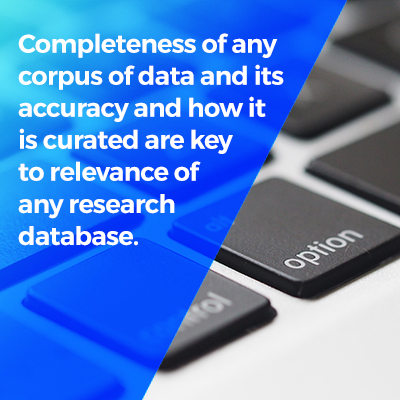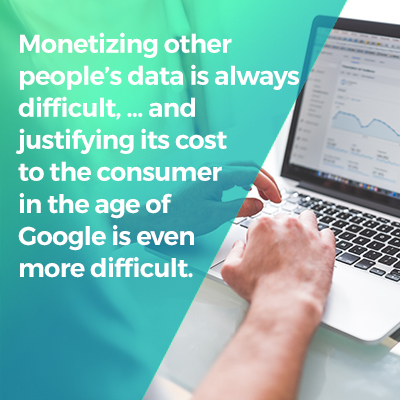At a recent partner event, I had the pleasure of speaking with Sally Okun, VP Advocacy, Policy and Patient Safety at PatientsLikeMe®. She shared her thoughts on the increasing role of patients in clinical trials. Her comments were similar to those expressed at a recent SCDM panel discussion by several patient advocacy groups.
My take away from the two conversations was that patients are becoming empowered, and they know that their data is valuable. Yet for competitive and privacy reasons our industry has been remiss in sharing their clinical trials data for further analysis. Indeed some patient advocacy groups were able to influence Pfizer to revise their consent agreements to allow for further reuse of their study results. Kudo’s to Pfizer for listening, and acting.
The FDA as a regulatory body is responsible for efficacy and safety, and it has only been in recent years that along with the NIH it has stepped into the fray by suggesting, and in the case of clinicaltrials.gov requiring, major players in drug development to share data.
Realities of data sharing
Historically the level of data sharing in our industry has been very limited citing privacy, yet if you listen to the founders of PatientsLikeMe®, individuals want their data to be available for reuse and analysis. After all, they are most vested to find a cure or advance new therapies. A recent announcement in the Journal Science declares; “A platform, recently created by Vivli, a nonprofit based in Cambridge, Massachusetts, debuts with access to more than 4000 clinical trial data sets from eight companies and nonprofits. Vivli, which spun out of a policy think tank at Harvard University–affiliated Brigham and Women’s Hospital in Boston, is part of a push to encourage drug developers to share trial data—even negative results, findings that show a treatment has no benefit.”
What a lofty goal.
There are already a number of initiatives, on a mammoth scale, within the pharma industry with the goal to bring conformity across clinical trials. Most notable is Trancellerate.
By last count there were 23 working groups each charged with tackling different aspects of clinical trials. In particular the standards for data subgroup has been working on that very challenge with cooperation from industry members for some time.
Also and independently of Trancellerate, many Pharma companies with long histories of running clinical trials have been very busy combining and consolidated their own data through use of proprietary or commercial interoperability platforms such as the Adaptive eClinical Bus®. A number of major eClinical software vendors are doing the same.

- Pharma have been collecting data for 100+ years
- PatientsLikeMe® is 10+ years old.
- Transcelerate is 6+ years old.
- FDA and NIH are 100+ and 30+ years old respectively.
So why is it that a new startup is attempting to do what others would not or could not do? The book Innovator’sDilemma by Clayton Christensen best sums it up when it concludes that innovation always comes from smaller companies or new entities with no history and no risk to their existing charter. They can change the landscape of an entire industry, or spark a new one altogether, because they solve a problem in an entirely new way or for an entirely new group of people.
So will this new entity succeed because it will never say “well we tried that a few years ago and it didn’t work” or will they be able to build the critical mass of data to succeed?
Realities of Data Aggregation
Completeness of any corpus of data and its accuracy and how it is curated are key to the relevance of any research database. Let’s look at major players in the healthcare and pharmaceutical industry data space such as Clarivate Analytics, Truvent Health (now IBM), Kluwer Health, Elsevier Science and similar organizations. They have been successful only because researchers trust that their database is comprehensive and relevant.
An incomplete reference database is quickly discredited and its usage and adoption will never materialize. Vivli, is already noticing that getting researchers to use their data is difficult. Their vision is to act as a neutral broker between data contributor, data user and the wider data sharing community. Those who are to contribute and participate in their pay-to-play business model will want to know how their data will be used and more importantly could be interested in receiving a share of the revenue – after all, that data did not come about cheaply, and in some cases they have an obligation to their shareholders. All those scientific database vendors previously mentioned have long-term and sometimes delicate relationships with their data sources. Monetizing other people’s data is always difficult, and recouping the cost of its curation and justifying its cost to the consumer in the age of Google is even more difficult.
With that cautionary note, I am excited to hear about Vivli’s initiative. If anyone can do this it will be someone from the outside. They will need to gain that critical mass of content first however. Stay tuned.
Sina Adibi is the CEO of Adaptive Clinical Systems and a veteran of Pharma and Health IT industry.
About Adaptive Clinical Systems
Adaptive Clinical Systems offers a unique, simple, secure, validated, compliant, and cost-effective innovative solution for clinical data integration and interoperability. The cloud-based innovative Adaptive eClinical Bus® solution integrates clinical study data from multiple systems and platforms — EDC, eCOA, CTMS, Medical Imaging, IRT, analytical/data visualization systems and others — to ensure accurate and efficient transfer of clinical data for any study of any complexity while going well beyond simple and difficult to scale integration to full, real-time interoperability.
The award-winning Adaptive eClinical Bus software includes “connectors” for many leading clinical trial software tools from well-known vendors such as Omnicomm, Medidata, BioClinica, and Clinical Conductor to open source clinical trial tools such as OpenClinica and Clinovo. Connectors can also leverage internally-developed and proprietary systems and help customers retain their competitive edge. Adaptive Clinical’s eClinical Bus® can easily integrate technology into an interoperable, efficient, and accurate clinical trials system that streamlines processes and improves data reliability and offers the freedom to choose the best eClinical tools of any third-party or proprietary systems while enjoying all the benefits of a fully integrated system.



